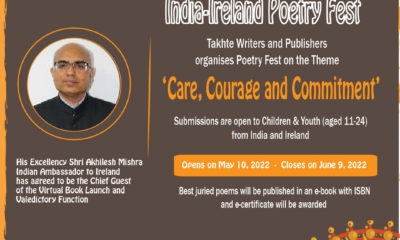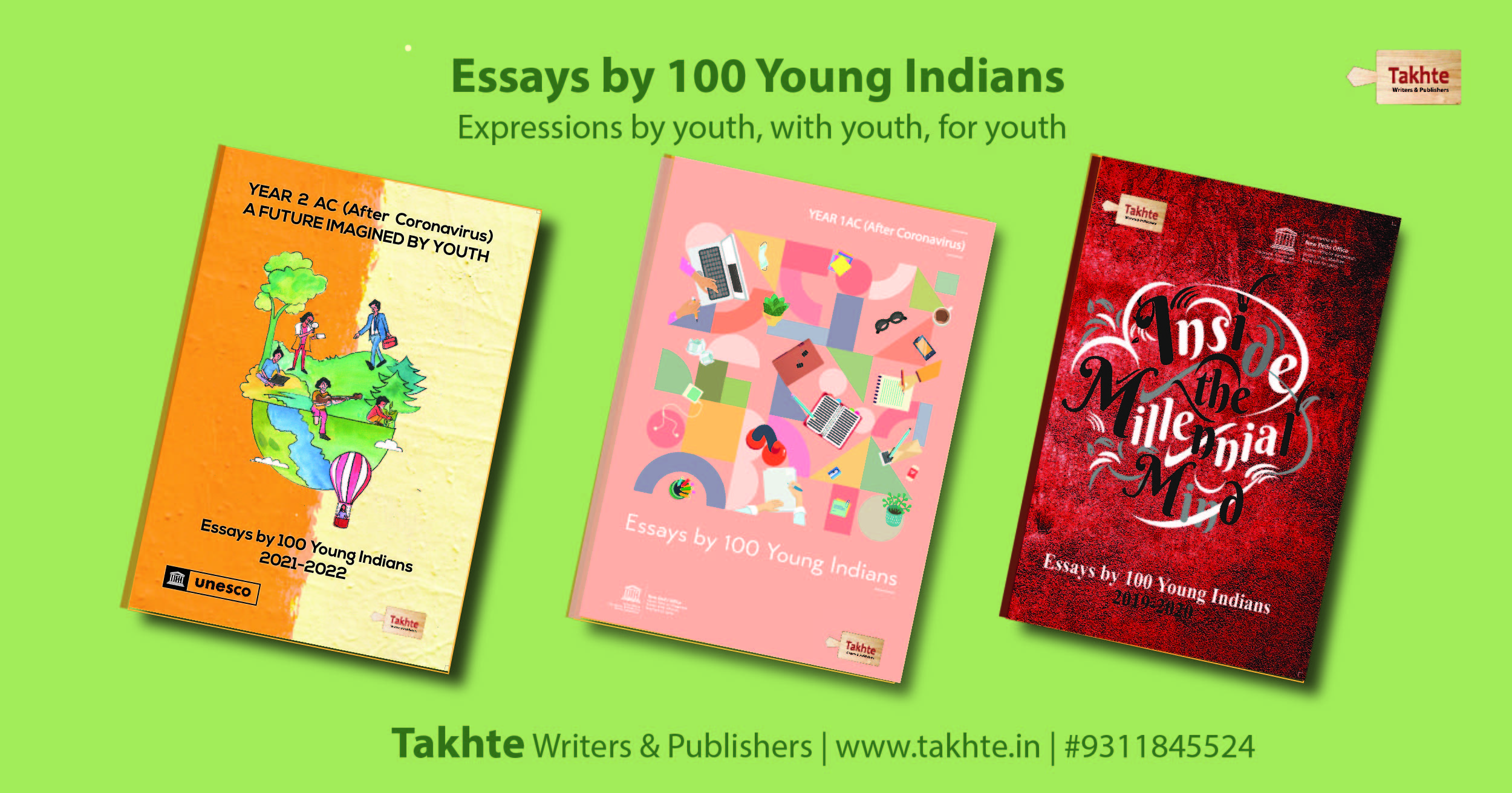Short-story
Of shades, dark and grey

Iman Shakeel
Kavita was eight years old when she first saw her mother Neena sobbing and wiping away her tears in her cotton saree. Neena was a single mother who worked around the town as a maid after being cast out of the house by her landlord Raj and his family due to an awful sin he had committed but never atoned for. This was when Neena realised the ordeals a woman encounters when trapped in the claws of a patriarchal society and how the woman always has to carry the burden of a man’s sin.
Raj never called Kavita by her name. He would always address her as “pari“- a fairy. He was fond of making her sit on his lap and narrating historical stories about how India suffered at the hand of British rule and how they robbed India of its precious diamond- the Kohinoor. He would also tell her mythical stories from the Mahabharata. Kavita would listen with enchantment and quiver with pride to have a father who possessed such vast knowledge.
Every Sunday, Raj would come to visit Kavita for an hour or two with gifts and endearments that made her feel deserving of all the bounty life had to give. And for this, Kavita adored her father even if she had to share him.
Raj had five children of his own, of which four were legitimate and all strangers to Kavita as she was the fifth unplanned child he had with Neena.
He was the wealthiest man in New Delhi. He owned a chain of lavish restaurants that Kavita had never seen. Still, Raj described it to her at her insistence, so she knew that the lobby was made of blue terracotta tiles, where Bollywood posters were encased in glass sheets, that it had a private balcony and gilded ceilings. On Wednesdays, Raj said children got free kulfis at the ice cream booth.
Neena, in quirkish, nodded when he said this. She waited until he left the house before smirking and saying, “Other children in the town get to relish on ice cream. What do you get, Kavita? Only tales of kulfis.”
Raj was one of Delhi’s most reputed men – a friend of the lieutenant governor and the ministers. He had an accountant to handle all his finances, a personal assistant and two caretakers. Neena had been one of the housekeepers until her tummy began to swell.
Sometimes, Neena wished, she dared to sharpen her knife and do the honourable thing so that she would no longer have to wear the scarlet letter around her neck. Even Raj didn’t have the courtesy to stand up to his family and in-laws and accept his responsibility for what he had committed. Instead, a deal had been struck behind closed doors to save the face of the family. The next day he made her pack all her things and sent her off.
“You know what he had told my father when asked about my swelling tummy? That I forced myself on him, that it was all my mistake. This is how they tread over a woman in India.”
“Look at me, Kavita.”
Hesitantly, she gazed at her mother.
Neena said, “Learn this now, my daughter, before it’s too late. A girl’s self-respect is the most important thing to her. If she loses it, it’s as if she has sold herself.”
Neena said she wouldn’t live in her mother’s empty house either, in Chandni Chowk. She said she wanted to live somewhere, away from the prying eyes of people, somewhere detached from the rest of the society, where neighbours wouldn’t stare at her belly and assault her with their unkind words. So, she decided to settle in an ancient palace in Sangam Vihar.
Neena didn’t mingle much with the neighbours in her new surroundings and spent most of her time indoors after a hard day of cleaning and scrubbing in elite people’s homes. She would earn only a few shillings at the end of the month. The young children were scared of her and would call her a witch. She had become a lunch hour talk where people would discuss her appearance, loneliness, guessing amongst themselves about her background, and how she didn’t have a husband but had a daughter. A few people would talk about her in a tone loud enough as she walked past them on the dusty streets that she could grasp a word or two but wouldn’t bother to turn around.
It was springtime, and Kavita had turned fifteen years old. Raj had gifted a casket with few gold coins, a silver necklace with a pendant of crescent star and stars hanging from them. At night Kavita lay in her bed and imagined how it would be like to live with her father and her other siblings in a mansion. They would walk together in Lajpat Nagar, where Raj said you could find whatever you want. She would wake up early to prepare breakfast for him as he would leave for office. In the evening, would eagerly wait at the doorstep to greet him and so much more. She wouldn’t have to wait for weeks to meet him.
The next afternoon, it was time for Raj to leave, and Kavita was sad and teary-eyed. ‘She stood by the palace window, tall and still, gazing absently at the blurred distance. She had two choices: both unattractive, out of which, she would have to make a decision…’
To either go and live with her other siblings or continue staying with her mother and meet her father only once in two weeks. It was tough for her to choose from.
“The next time you come, I want you to take me to my other siblings so that I can meet them, and we can live all together,” Kavita told Raj with a lingering hope as he was disappearing out of her sight…
At first, Neena banged her head in her hands, whimpering around.
“Of all the daughters I could have, why did I endure pain for someone as ungrateful as you. What a stupid girl! Do you think you matter to him or his family? I’m all you have in this world who loves you and wishes for your well being. Are you going to abandon me like this?”
Kavita decided that she is never going to visit her father’s place. She knew the miseries and suffering her mother had endured in bringing her up. She realised how her mother had grown frail and pale over the years owing responsibility for everything that happened to her but never let Kavita feel a morsel of regret or pain. She knew her mother had lived with her past but worked hard to earn a living.
Years passed by, and Neena’s sweat and blood paid off. Kavita had grown into a highly educated, independent woman with a family of her own – she was a successful entrepreneur now and had a clothing brand. Neena had saved her earnings from odd jobs so that she could help secure her child’s future and not let her live at the mercy of others. She knew wretched men and how they never accept illegitimate children in public but shower heaps of love and endearments when society is looking away.
Raj had completely abandoned both Kavita and her mother and hardly ever communicated to inquire about their well-being after his children grew up. He wanted to bury his past so that his image would not get tarnished amongst people who revered him and considered him a respected gentleman.
Over the years, Neena had grown sloppy and bent with age. She could barely walk or perform her chores. She had developed a severe terminal illness that doctors declared could not be cured as it was in its final stage.
On a chilly winter morning, Neena breathed her last, and her soul made its way up peacefully.
The sole purpose of her life was accomplished – She wanted to see Kavita as a well-settled woman with a voice of her own and didn’t want her to be affected by her mother’s dreadful past.
As Kavita was laying her mother to her final rest, she recalled her own life – her entry into the world as an illegitimate child, a pitiable thing, a regrettable mistake, and yet how her mother loved, nourished and inculcated in her values of self-respect and pride that adorn a woman. Her mother was leaving the world as a companion, a guardian- An angel mother. This was her legitimate end. She even recalled how her father always mocked her mother and never brought her anything each time he came to visit. He deprived her of essential financial support leaving aside love and care.
For Kavita, a lump of gratitude swallowed down her throat and, with watery eyes, performed her mother’s last rites realising how despite being cast off and rejected everywhere, she had the glimmer of hope that helped her continue moving forward. Neena believed that people with the worst past could create the best future – That’s why she toiled hard day and night because she was determined in providing her daughter with a better head start for life.
In all the misery she was inflicted with, she put them all aside and instead found beauty in the joys of living. She didn’t let people’s stare or harsh comments deter her from doing something she truly believed in.
She found beauty in the rest of her life that was awaiting her- a harbinger of hope and an instrument of courage and never let her past dictate her life.
Kavita admired her mother. She had seen her mother transform hopelessness into purpose and sadness into meaning. She rebooted her life and gave wings to her dreams
.At the end of everything, she was lost in thoughts, and one question kept looming in her head: How did her mother, being a single woman, muster so much courage in raising her?
Short-story
The Abandoned Soul

Short Stories – Kumbh Series
Garvit Agarwal
Lucknow
Writer attended a Creative Writing Course by Takhte Writers and Publishers
The sun hung low over the Kumbh Mela, casting a warm golden hue across the throngs of devotees gathered along the banks of the sacred Ganges. The air buzzed with chants, laughter, and the rustling of colourful saris flapping in the wind. Pulkit and Ragini moved through the crowd, their hands intertwined but their expressions distant.
“Look at them, Ragini,” Pulkit said, forcing a smile as he gestured toward a group of children splashing in the water. “So carefree.”
“Carefree,” she echoed, her voice tinged with bitterness. “Must be nice.” Her gaze drifted to their son, Akash, who stood a few paces behind them, his eyes wide as he took in the chaos around him. His fingers fidgeted with the hem of his shirt, a habit that had grown more pronounced in recent months.
“Let’s just find a spot,” Pulkit replied, his tone clipped. “We can’t stay here all day.”
As they settled near the ghat, the chanting grew louder, drowning out the silence that had settled between them. They exchanged a glance, a shared understanding of the growing weight of their decision.
“Pulkit,” Ragini began, her voice shaking slightly. “Are we really—”
“We have to,” he interrupted, the determination in his eyes hardening. “It’s for the best.”
Hours passed, the sun dipping lower, casting long shadows on the ground. Ragini watched as Pulkit knelt beside Akash, who was now fixated on a butterfly fluttering nearby. “Hey, buddy,” Pulkit said, his voice softer than before. “Want to chase that?”
Akash didn’t respond, lost in his world. Ragini felt a pang in her heart but quickly pushed it away. They were here for a reason, after all.
“We should go,” Pulkit said, rising to his feet. “It’s time.”
“Pulkit, I—”
“Ragini, we’ve talked about this.” He took a deep breath, his brow furrowed. “We can’t keep pretending everything is fine.”
With a heavy heart, they turned their backs on their son, leaving him by the ghat. “I’ll be right back, Akash,” Pulkit called over his shoulder, though he didn’t look back.
As they walked away, Ragini felt the weight of their decision settle in her chest like a stone. The laughter and chanting faded into a dull thrum, replaced by the sound of her heartbeat.
Later, as they listened to the preachings of a saint, a shift occurred. The saint’s voice boomed through the crowd, reverberating deep within Ragini. “Love is the greatest sacrifice,” he proclaimed. “To abandon those we love is to abandon our very souls.”
Pulkit stiffened beside her. “Did you hear that?”
“Yes!” she whispered, her heart racing. “We need to go back.”
They rushed back to the ghat, but the crowd had thickened, and panic set in as their eyes searched frantically. “Akash!” Ragini called, her voice rising above the chaos. “Where are you?”
“Stay calm,” Pulkit urged, though his voice trembled. “He can’t have gone far.”
Hours turned into days, and the relentless search for their son felt like a nightmare from which they could not wake. Each day, they returned to the ghat, calling his name until their voices were hoarse.
“Why did we leave him?” Ragini sobbed one evening, her tears mixing with the river’s water as she knelt by the bank. “What have we done?”
Pulkit sank to the ground beside her, his own eyes brimming with regret. “I thought I was doing the right thing,” he murmured, his voice breaking.
“Where is he?” She cried, her heart shattered. “What if—what if he’s alone and scared?”
They were lost in their remorse, the vibrant colours of the Mela fading into a blur of sorrow. The river flowed steadily beside them, indifferent to their pain, as they clung to the hope that somehow, some way, they would find their son again.
Photo Courtesy – Mr Rajesh Balouria by Pixabay
Short-story
Triumph of Connection

Short Stories – Kumbh Series
Rutbik Gupta
Bilaspur, Chattisgarh
Writer attended a Creative Writing Course by Takhte Writers and Publishers
The Kumbh Mela pulsed with life, colours swirling like a painter’s palette. Krish and Shreya squeezed through the throngs of pilgrims, their parents trailing behind, eyes wide with wonder. The air buzzed with chants, the scent of incense thick around them.
“Look at all those people!” Shreya shouted, her voice barely rising above the chaos. “I feel like we are in a river of heads!”
“Just stay close,” Krish replied, his grip tightening around her hand. “We can’t lose each other here.”
Suddenly, a small voice broke through the din. “Mama! Papa!” A boy, no older than six, stood alone, tears streaking his dusty cheeks. Krish’s heart sank.
“Shreya, we have to help him,” he said, kneeling to the boy’s level. “What’s your name?”
“Teerth,” he sniffled, wiping his nose on his sleeve. “I can’t find my parents!”
“Don’t worry, Teerth. We’ll help you,” Shreya promised, her voice softening. “Where did you last see them?”
“By the river… I was looking at the fish,” Teerth whimpered, glancing around, panic rising. “They were right there!”
“Okay, follow us,” Krish said, standing tall, determination setting in. “We’ll find them.”
They moved through the crowd, the rhythm of drums and chants echoing around them. Krish scanned each face, searching for a hint of recognition. Shreya whispered encouragement to Teerth, who clung to her hand.
“Look!” Shreya pointed, spotting a frantic couple searching through the crowd. “Teerth, is that them?”
Teerth’s eyes lit up. “Yes! Mama! Papa!” He bolted towards them, the sound of his small feet hitting against the ground.
Krish and Shreya exchanged relieved glances, hearts racing. The couple raised Teerth into their arms, tears streaming down their faces.
“Thank you! Thank you!” the mother cried, her voice breaking.
“Thank you so much, children. You’ve been our saviour”, said the father, with teary-eyed.
“No problem,” Krish said, a smile breaking through the tension. “Just doing what’s right.”
As the family embraced, Krish and Shreya shared a knowing glance. The chaos of Kumbh Mela swirled around them, but at that moment, they felt the triumph of connection.
Photo Courtesy – Mr Rajesh Balouria by Pixabay
Short-story
Fury of Tomato

Advika Bhatnagar
Shikshantar School, Gurugram
Grade 3
Alice, a nine-year-old boy, lived in the countryside of Tinseltown with his Granny. He was a stubborn and edgy child. He liked to eat whatever he wanted and didn’t care much about Granny’s words. This made the old lady very sad.
“Granny, Granny, hunger pangs! I want pizza and chocolate ice cream for dinner,” said Alice
“Wait, child, I’m making delicious chicken soup, healthy multigrain bread, and a fresh salad,” answered Granny.
Alice got angry when he saw salad on the dining table. He yelled, “Again, cucumber, bell pepper, carrot, and tomato. Is that what I will eat? “No, no, no, never, not at all. No dinner tonight.” Granny got worried and left the house to get his favourite food.
Alice was all alone. In anger, he picked up the tomato and threw it at the wall. The red pulp of the tomato almost covered the mid-wall. He was shocked to see the pulp turning into a monster.
“Ha, Ha, Ha, you stubborn boy. Every day I see you trouble your Granny for food. When you hit me against the wall today, I felt hurt. I will teach you a lesson. I am the new king of vegetables. I rule the meals,” said the tomato monster. And then the monster followed him everywhere in the room.
Alice was so scared that he was running in different directions. Sitting under the table, he quietly prayed, “Oh God, please save me from this deadly monster.”
Alice rushed to his Granny’s room, wears her hat and robe. He picks up the embroidered, favourite napkin of the Granny and moves slowly towards the wall. He wipes the tomato pulp, and the monster disappears right away.
Alice gets the lesson of his life to value all food. He vows to take care of Granny, as her belongings protect him. When she was back, he hugged her and said, “I love you so much. I will eat whatever you cook for me.”
The writer attended Takhte Writers & Publishers’ Story Writing Writeshop at Kalasthali, Gurugram.
Photo Courtesy – Andre Taissin (xRUJcUTEp6Y) Unsplash
-

 Uncategorized3 years ago
Uncategorized3 years agoOnline Elocution Contest
-

 Poems4 years ago
Poems4 years agoPoems
-

 Legal Talks4 years ago
Legal Talks4 years agoCUSTODIAL RAPE IN LIGHT OF THE MATHURA GANG RAPE CASE
-

 Poems3 years ago
Poems3 years agoIndia-Ireland Poetry Fest
-

 Legal Talks4 years ago
Legal Talks4 years agoCompliances Relating to the Commercialization of Electronic Devices
-

 Art & Culture4 years ago
Art & Culture4 years agoThe Lore of the Days of Yore: Significance of History
-

 Legal Talks4 years ago
Legal Talks4 years agoPrivacy Laws & Consent while using Image of Random People Clicked on Street for Facial Recognition
-
Short-story4 years ago
Bibek’s visit at his friend’s bungalow














